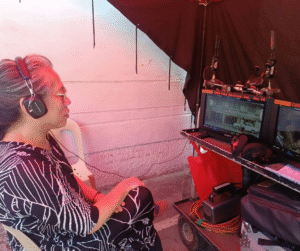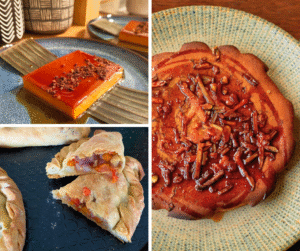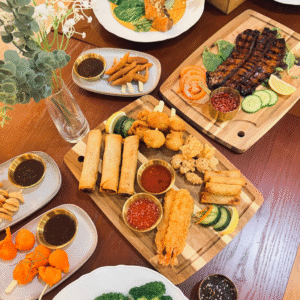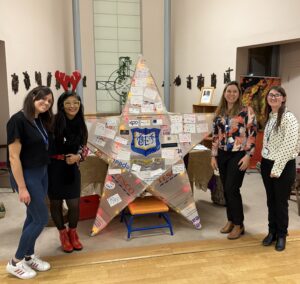Christmas is a time for big, noisy family reunions in the Philippines. Our contributor Julienne Raboca rejoins her family and reflects on being a ‘rebellious’ child who left home for many years and her new understanding of family and home.
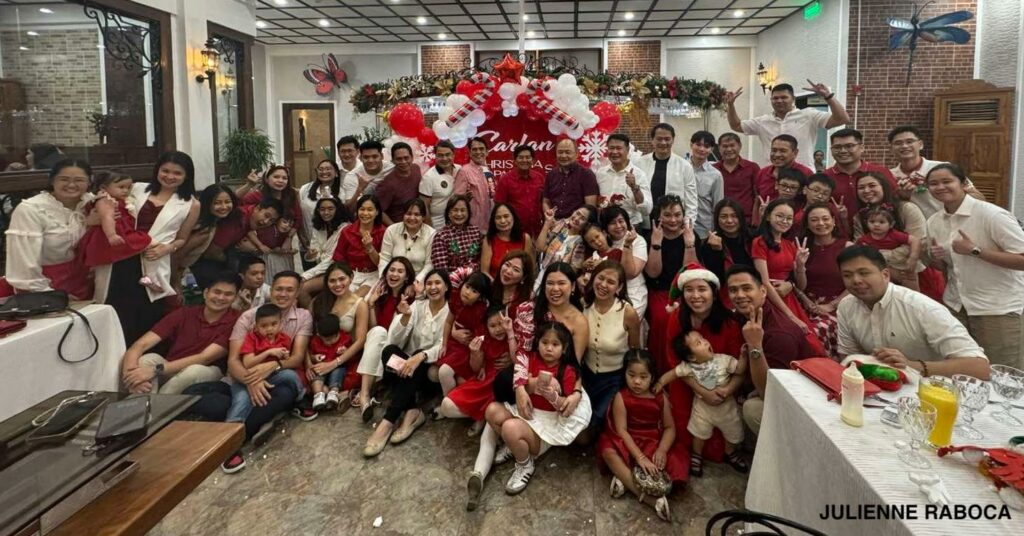
By Julienne Raboca
In a century-old stone house in Pampanga, where cash-prize karaoke and pancake-flipper games are as much a part of Christmas as midnight mass, a once-rebellious daughter discovers that the path to self-acceptance winds through the very traditions she once fled.
Every year, two of my grandmother’s fourteen children and their families are appointed to organise our Christmas gathering. We’ve had themed parties, dance instructors teaching Latin and ballroom, and venues ranging from hotel ballrooms to family gardens. But my fondest memories are from the old stone house where I spent countless childhood weekends, making the seemingly endless drive from Manila on NLEX before SCTEX existed.
The dried lava has been cemented over in the basement of my grandparents’ stone house, a grey reminder of the year Mount Pinatubo erupted and buried half the ground floor. It’s been over thirty years, but we’ve left it that way – perhaps as our own private memorial to nature’s power, or maybe because, like many things in our family, we learned to build our life around it rather than fight it.
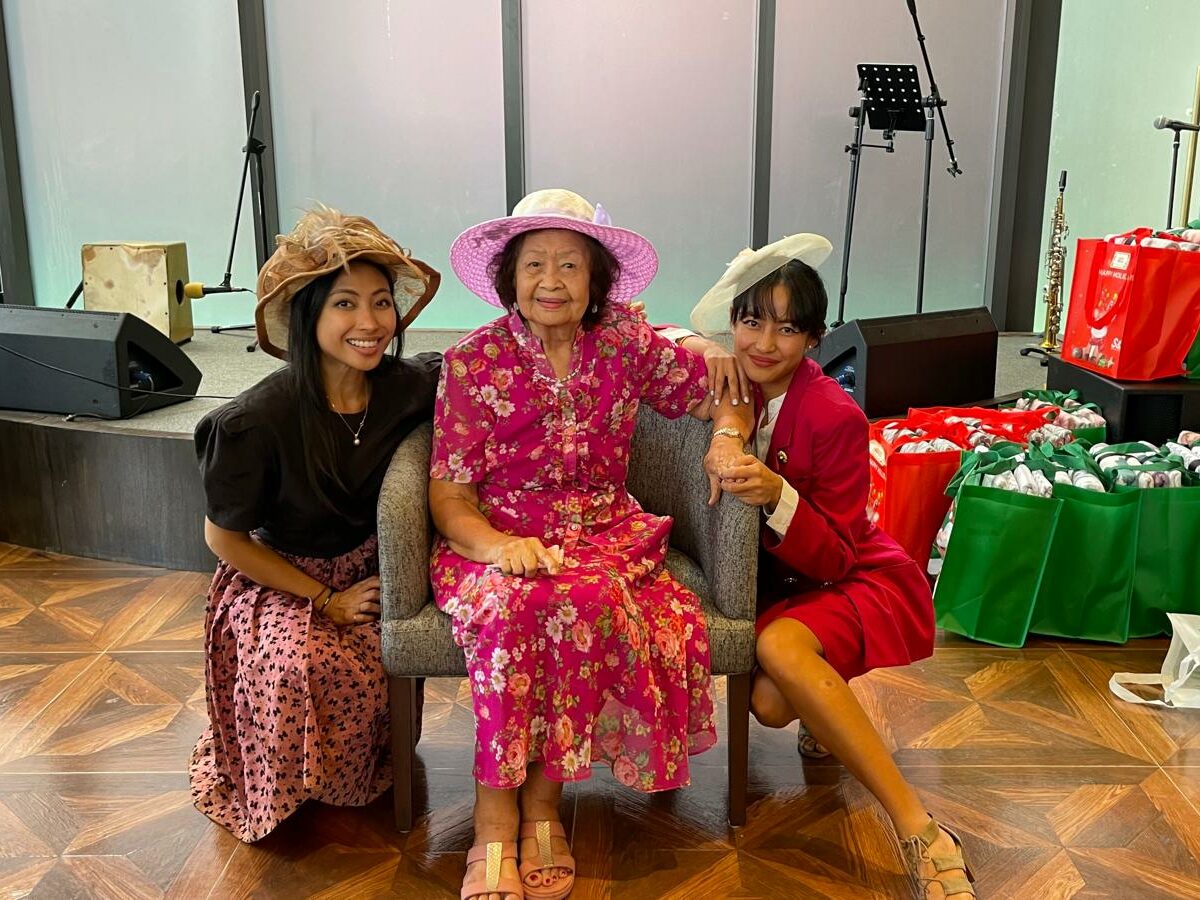
When the Philippine dry season arrives around mid-November, cool winds supplant the previous months’ lashing rains. In my childhood, these winds meant something special in our family: the arrival of duman, a rare treasured green rice mainly grown in Pampanga that my grandmother used to secure through her network of secret farmers.
Lola (“grandmother” in Filipino) Manding would place her orders up to years in advance, ensuring each of her children and grandchildren would receive their precious one-kilo allocation. We’d freeze it throughout the year, rationing it carefully to eat with hot milk or batirol – chocolate meticulously hand-beaten with a wooden stick in a metal pitcher. The glutinous grains would soften and become chewy, creating a taste so uniquely local that I believe only people from this small town and my family truly understand its magic.
Some Christmases, Lola would hide the duman, and my theory is that only her favourites would “accidentally” find it. I remember countless holiday evenings disrupted by the chaos of discovery – one cousin would spot another secretly slurping down their duman in the kitchen, and the news would spread like wildfire to those playing chess or cards in the long living room. Those days are gone now, along with the regular supply of duman itself, but the memory of that shared secret remains a thread in our family’s tapestry.
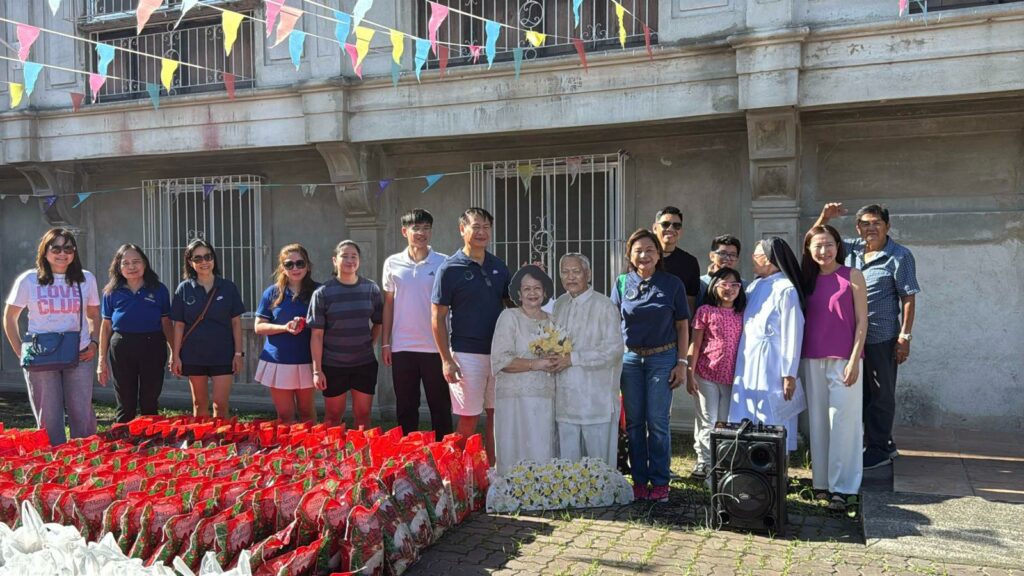
I’m at Rustica restaurant in San Fernando, Pampanga now, where our 2024 Christmas gathering has moved since my grandparents passed away. The rooftop parties at the old stone house are now just memories, but the familiar chaos persists: my aunts coordinating the catering with military precision, my cousins’ children – too many to count now – ripping apart the Styrofoam décor, my eldest uncle stepping up front to make the welcoming remarks.
Ten years ago, I might not have chosen to be here. I was working in Hong Kong, telling myself that my expat friends were enough, that my family didn’t understand me, that I’d outgrown these traditions. I was the difficult one, the one who challenged everything – the antithesis of the demure Maria Clara ideal that still haunts Filipino daughters.
While my cousins dutifully performed at family gatherings, I questioned why we needed to sing for cash prizes. (Kidding aside, you’d have to stop me from singing for cash prizes!). While my aunts praised conformity and finding a match from a good family (as in, another rural banking family), I chased a different life across continents.
One’s true colours are revealed not with words but over time. Before she died in 2010, my mother made my sister and me promise to “always stay close to the Lansang-Carlos family.” I didn’t understand then. I was too busy building walls between who I was and who they wanted me to be, mistaking their simplicity for simple-mindedness, their traditions for chains.
But family has a way of waiting you out, at least mine did – maybe without even knowing it. They watched me evolve from “problem child” to party girl, to business journalist in London. They waited through my absences, my criticisms, my self-imposed exile. Not with perfect patience – there were tears and whispers, disappointed Viber group messages and frustrated silences – but with a constancy I didn’t appreciate until I stopped running.
Now, at 36, I find myself voluntarily back in Pampanga, where my mother’s family has lived for hundreds of years. I watch as my cousin’s husband demonstrates this year’s party game – something absurd involving a pancake flipper, scattered peso bills, and a blindfold. The children shriek with laughter. Once upon a time, I might have found it alienating (ironically, despite growing up inside of it). Now I see it for what it is: the simple joy in being together, unchanged by time or pretence.
I grab the microphone from the hired entertainer and try to belt to ABBA’s Dancing Queen over the shrieking of my family members (yes, Filipino family gatherings are LOUD) as they dance and grab at the prize money. We’ve already done Achy Breaky Heart (no Macarena or Gangnam Style this year), and despite my 35+ years on this planet, I still don’t know the steps to the line dance that every Filipino auntie seems to know. Now that I am one, shame on me!
Also – a decade ago, I would have rolled my eyes at the small denominations of peso bills carefully counted out for each winner. Today, I understand it’s never been about the money. It’s about the silly celebrations that keep a family’s heart beating.
My grandmother gave birth fourteen times, and every child completed a college degree. The mathematics of that accomplishment still astounds me. But perhaps more remarkable is how she managed to love each child, each grandchild, each great-grandchild with such equality that none of us – not even her most wayward granddaughter – could ever doubt our place in her heart.
As I distribute my Christmas gifts – tablea from my father’s cacao farm in Mindanao, traditional chocolate tablets that will become rich, steaming cups of sikwate – I realize that coming back isn’t the same as giving in. Sometimes, it’s about growing large enough to hold both who you’ve become and where you came from. The prodigal daughter returns not to surrender her independence, but to understand that it was never at risk in the first place.
The dancing starts up again. Everyone has lined up for yet another round of Village People’s YMCA, or buko (coconut) pandan salad for dessert. I catch myself smiling and taking videos.
Later, we’ll pack gift bags for the community, continuing a tradition older than my understanding of it. But for now, I simply exist in this moment, in this place, with these people who never stopped being my home, even when I stopped believing they were.
About the author

Julienne Carlos Raboca is a London-based journalist with over a decade of international experience in digital marketing, content management, and communications. After 10 years in Hong Kong, she is now working as a commodities reporter at Fastmarkets, having completed an MA in Journalism, Media and Globalisation as a European Commission scholar at Aarhus University and City, University of London.


